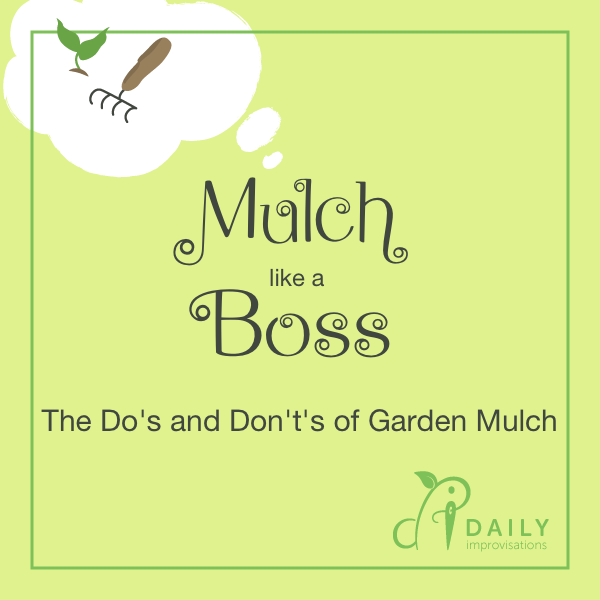Mulch is like mayonnaise. How much you put on and how you spread it are important for a satisfactory result.

There are 3 basic reasons for laying down mulch in the garden:
- to help control weeds
- to moderate water loss
- to add nutrients to the soil
I go over specifics in the video below, but it is also written out after that.
What can you use for mulch?
It depends on your overall goals. If it is just weed control there are options that you probably don’t want to use right up next to your plants. If you need something that will improve your soil immediately, you need well composted materials. Here are things that can be used for mulch:
- compost
- cardboard
- paper
- rugs
- grass clippings
- non-seeding or non-root growing weeds
- bark
- wood chips
- appropriately aged animal manure
- hardscaping (pavers, gravel)
- other growing plants (interplanting or succession planting, but be careful about crowding)
What NOT to use for mulch:
- grass clippings with seed heads
- roots of plants that sprout from roots
- grass or weeds sprayed with herbicide or germination inhibitors
- food scraps that attract animals or harbor pathogens
- manure that will burn plants
- materials that contain contaminants that can leech into the soil (be particularly aware of what wood has been treated with)
How should you apply mulch?
- layer only 1-2 inches deep, so that it can dry out and drain enough
- don’t accidentally cover new seedlings or bury seeds too deeply with the new layer
- avoid putting right up against stems and trunks
- avoid giving insects and rodents hiding places or places to climb up to foliage
How often should you mulch?
For me, this is always determined by a combination of time constraints, when the lawn is being mowed, and what stage weeds are in. My garden is large enough that mulching too often has never been a problem for me. However, it could be done too often for reasons that should be apparent in this list of factors to consider:
- have you allowed your previous layer of mulch to settle and/or dry?
- have the plants grown enough to be able to tolerate another layer around them?
- how will more mulch affect the nutrient balance? (Too much of some nutrients inhibits the ability to absorb other nutrients. Read about chlorosis here.)
- is the ground staying TOO wet?
Mulching is a great way to improve time efficiency in your gardening. Even though I love spending time in my garden, that doesn’t mean I want to weed unnecessarily. But mulch is not a magical solution to a weedless garden. It is part of a strategy. Check out my book review of Weedless Gardening for a well-rounded strategy.
